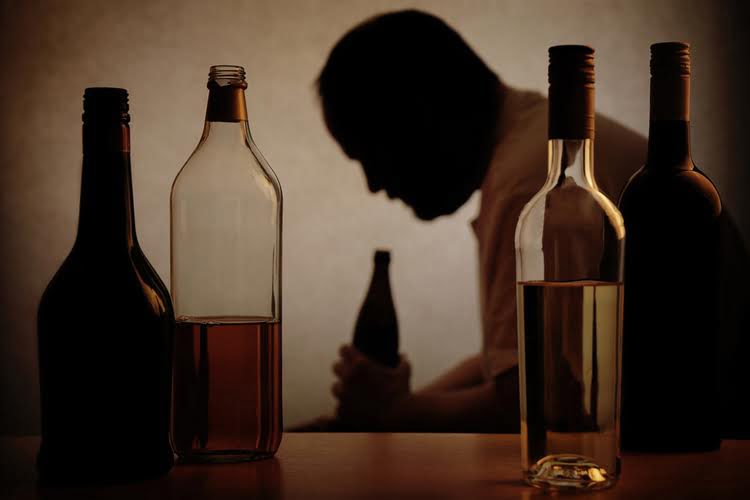At Porch Light Health, we specialize in providing various types of support to help individuals manage their recovery effectively. Whether you need to talk through challenges, adjust your treatment plan, or access resources, we’re here to help. Mindfulness and meditation are powerful tools for managing stress and reducing alcohol cravings during the holiday season. These practices can help you stay present and maintain your sobriety goals. If you need help during the holidays, you can always contact a mental health counselor or treatment center.
Warning Signs of a Relapse

You have the right to decline invitations to events where heavy drinking will occur, leave gatherings early when you feel uncomfortable, or request that certain topics remain off-limits. Communicating these needs clearly—though it may feel difficult—protects your recovery and https://tagmanclothing.com/top-10-faqs-about-aa-meetings-addressed-by-experts/ models healthy behavior. Your sponsor and friends from recovery programs are valuable resources during difficult times. When you’re facing a challenging situation, reaching out to them through a text message or phone call can provide the accountability and perspective you need. It’s common for individuals in recovery to keep their sponsor’s contact information easily accessible and establish a system for checking in before attending events that may trigger cravings.
Last year, when Lauren Haydel began her first sober holiday season, she wondered how difficult it would be to avoid alcohol at family parties and celebrations with friends. She owns a boutique, Fleurty Girl, in New Orleans’ French Quarter, a neighborhood synonymous with drinking. There are countless opportunities to serve your community during the holidays.
![]()
A Proactive Plan is Your Best Defense
If everyone starts talking about the “good old days,” leave the room. You don’t want to start thinking about your drinking or using days. That can lead to preoccupation and obsession, and then to cravings. Building new, meaningful traditions and staying connected with supportive communities can help people in recovery counter these triggers, preserving their progress throughout the season. From end-of-year work deadlines to hectic travel schedules, many experience stress that builds up over the season. Physical and mental exhaustion can lower emotional defenses, making it harder for individuals in recovery to resist cravings.
Staying Healthy Through the Holidays
These stressors can act as triggers, challenging your ability to stay focused on your sobriety and mental health. The holiday season is a time of joy, connection, and celebration—but it can feel like walking a tightrope for those in recovery. The festive gatherings, emotional triggers, and social pressures can test even the strongest commitment to sobriety. Arriving with your own non-alcoholic beverages ensures you’ll have a drink option that aligns with your sobriety goals. It alcohol rehab also allows you to participate in the festive atmosphere without feeling left out.
Build a Supportive Network
Use phone meetings if attending face-to-face isn’t a possibility. Visit Al-Anon’s holiday link for details on the Al-Anon phone bridge. Alcoholics Anonymous, Narcotics Anonymous, Al-Anon, and other 12-step recovery groups put extra meetings into place either in person or over the phone during the holidays. Al-Anon, for instance, offers meetings every hour on the hour over the phone on major holidays like Thanksgiving and Christmas.
Alcohol Rehab
These triggers don’t simply create discomfort—they activate the brain’s reward pathways and challenge the neural changes achieved through recovery. Stress hormones like cortisol surge during emotional upheaval, weakening impulse control and decision-making abilities. When combined with the romanticized cultural narrative that holidays “require” alcohol to be enjoyable, individuals face a perfect storm of vulnerability. The brain’s association between celebration and substance use becomes particularly loud, making staying sober during the holidays a deliberate practice rather than an automatic response.
But it’s important to let them know what you need to feel comfortable during the holidays. If you bring your own drinks to a party, you’ll always have something to sip on, and it can help you avoid the pressure to drink alcohol. Even when the holidays seem like an opportunity to take time away from your recovery journey, that’s probably when you need to put extra effort into it. Plus, there are a variety of ways you can enjoy the holidays even more when sober. If you are committed to sober holidays one of the best ways to minimize stress in the moment is to practice your response ahead of time.
Set Boundaries
- Having a response ready can help reduce awkwardness and reinforce your commitment.
- Still, it never hurts to jot down a few more polite responses in your playbook.
- Some standard excuses are that you have to get up early the next day, you can’t mix alcohol with your medication, or you have to pick your child up on the way home.
This can help improve your mood and reduce anxiety without sober holidays relying on substances. If you accidentally sip something with alcohol in it, don’t panic. One mistake doesn’t mean you’ve relapsed but keeping it secret is a slippery slope.
- She specializes in complex trauma treatment, anxiety disorders, substance addiction, and EMDR (Eye Movement Desensitization and Reprocessing).
- Into Action offers a few tips for those in recovery to make staying sober and sane this holiday easier, even when life at home is far from perfect.
- The key to fulfilling sobriety is connection — the true spirit of the holidays.
- Ice skating engages your whole body, releasing endorphins that improve mood naturally.
- A healthy breakfast is crucial to set the right tone for the day.
Robin Recovery Cleveland, OH

The physical exertion releases endorphins, while the quiet surroundings offer a chance for reflection and stress relief. These options offer a balance of complex carbohydrates, protein, and healthy fats. They provide sustained energy and help maintain stable blood sugar levels throughout the morning.
Identify a supportive sober friend or family member who can accompany you to gatherings. This person serves as both an accountability partner and a source of comfort when situations become uncomfortable. Their presence provides a natural buffer against unwanted questions or pressure to drink. Numerous apps and online resources offer support for those in recovery.


